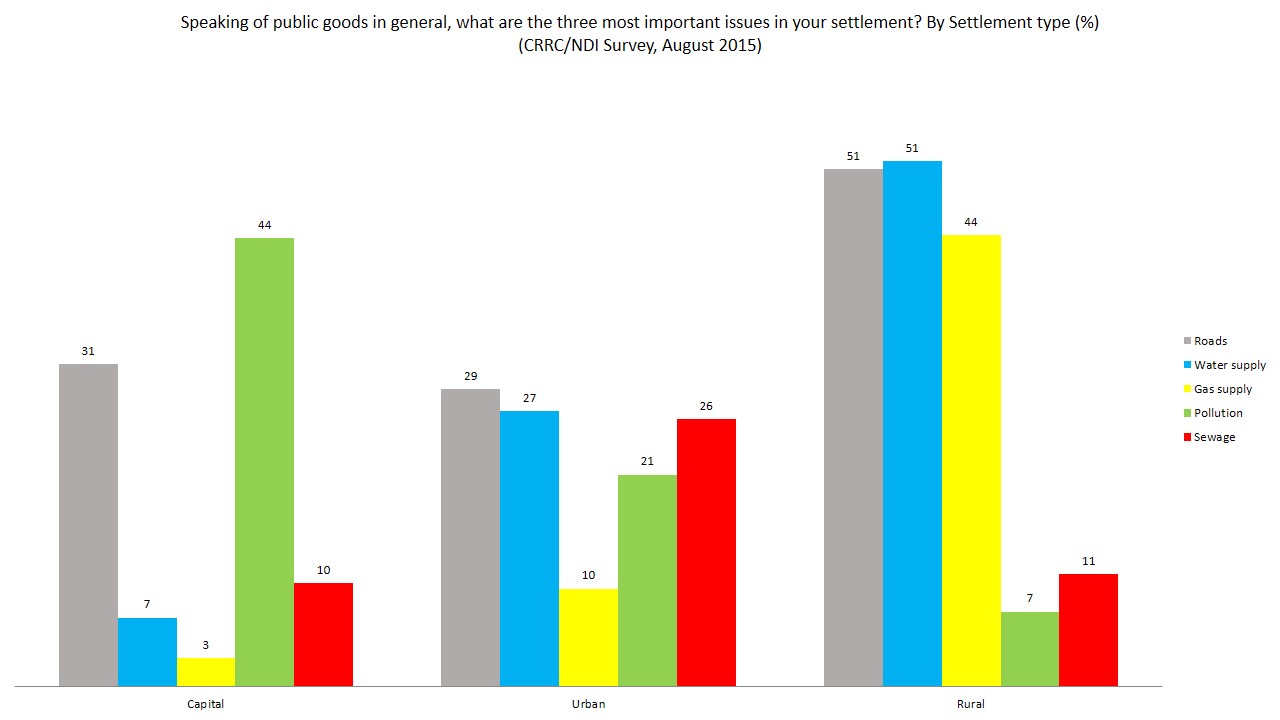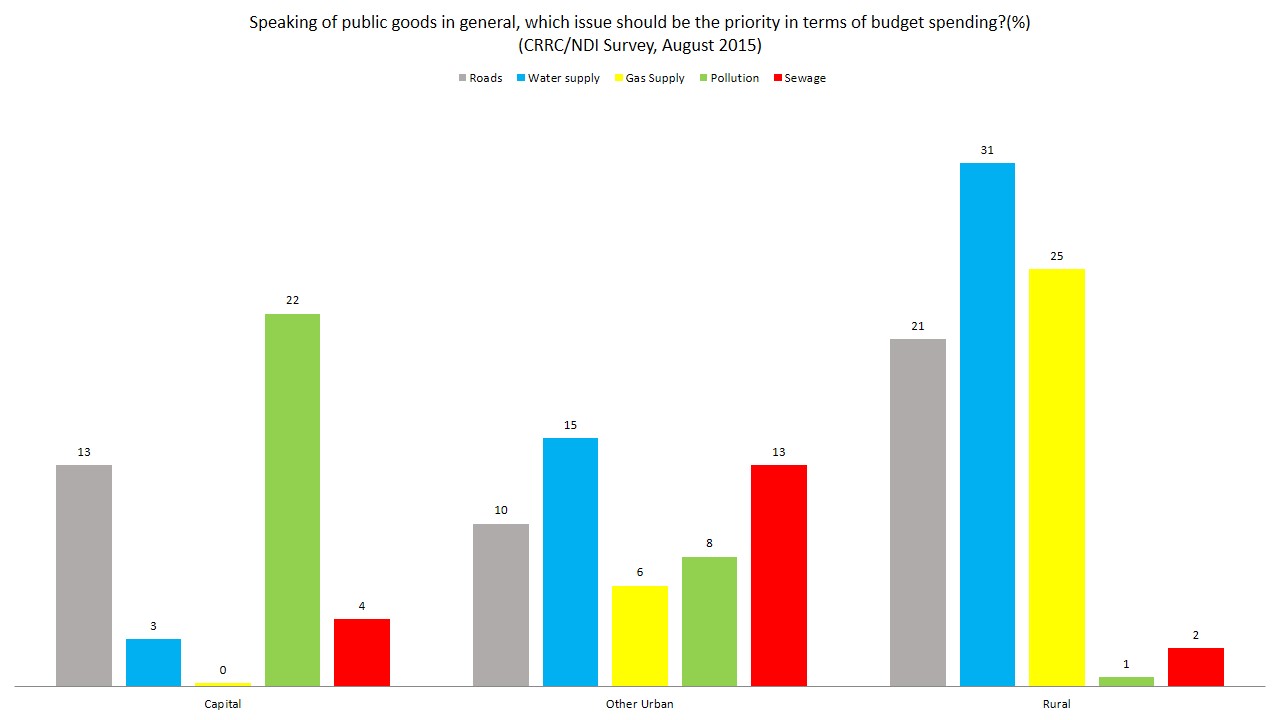[Note: This post was first published on Friday, July 15th at the Clarion.]
By Sacha Bepoldin
The United Nations Research Institute for Social Development (UNRISD) has highlighted that “Environmental decline adversely affects the health, well-being and livelihood opportunities of the individuals affected by pollution or natural resource depletion. Soil erosion, deforestation, the loss or depletion of animal and plant species limit the productive opportunities of vast numbers of people.” In Georgia, according to the 2009 National Report on the State of the Environment of Georgiaand the 2012-2016 National Environmental Action Programme, the increasing number of natural disasters, chemical pollution of soils and progressing desertification, mainly in Shida Kartli, Kvemo Kartli and parts of Kakheti, are clear signs of man-made pollution. Both rural and urban inhabitants of Georgia are affected by environmental problems, albeit of a different nature. As public opinion data shows, people assess the importance of environmental problems differently. This blog post examines the salience of pollution as an issue for the settlement where people live and the relative importance of this problem compared to other issues, using the CRRC/NDI August 2015 survey.
One of the questions asked during the survey was, “Speaking of public goods in general, what are the three most important issues in your settlement?” Pollution was the fourth most frequently mentioned issue countrywide, after roads, water supply and gas supply. There are, however, differences in the frequency of naming these issues by settlement type. While pollution was the main issue in the capital, named by 44% of Tbilisi residents, it was named by only 7% of the rural population.
Note: The sum of answers does not add up to 100%, since respondents could name up to three issues. The charts in this blog post display only the five most frequently named issues at the national level.
At the national level, improvement of the water supply and roads are the public’s highest priorities in terms of budget spending, while pollution again ranks fourth. Pollution represents the highest priority for the population of Tbilisi, but only 1% of the rural population thinks spending on pollution should be a budgetary priority.
The rural population likely underestimates the importance of pollution and environmental issues in general. At the same time, a study conducted by the University of Gothenburg highlighted that degrading agricultural practices affect 35% of farmland in Georgia, which is already scarce due to the mountainous landscape of the country. As agriculture, according to official sources, is the main employment sector in the country, such practices threaten the lifestyle and economic opportunities of a large share of the population. Given the disconnect between lack of concern over this issue in rural settlements, on the one hand, and the likelihood that it affects the rural population, on the other hand, a communication campaign focused on environmental protection, especially in rural settlements, could help prevent further environmental problems.
To look through the data in more depth, visit CRRC’s Online Data Analysis platform.










